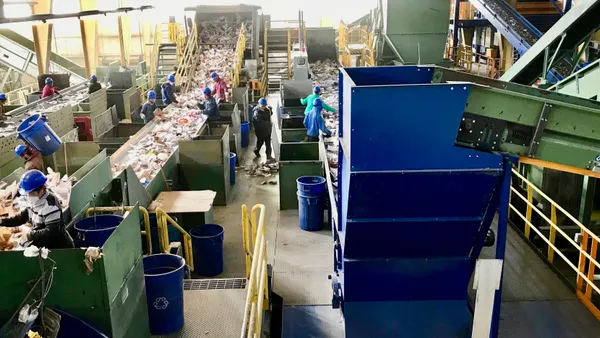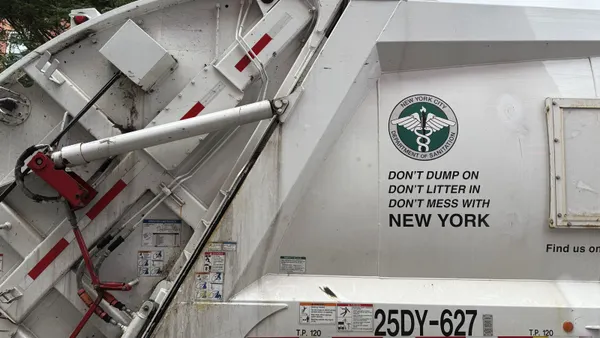Dive Brief:
- According to a new study by The Ocean Cleanup, published in Nature Communications, rivers transport between 1.15 million and 2.41 million metric tons of plastic waste into the ocean each year.
- Just 20 of the thousands of rivers that deposit to the ocean contribute 67% of inland plastic pollution, the study found. This is the first global assessment of plastic pollution from inland populations (further than 50 km from the coast) that winds up in oceans, according to The Ocean Cleanup.
- The Ocean Cleanup founder and CEO Boyan Slat said in a press release that for his organization's work to be successful, "it's crucial that governments and other organizations speed up their efforts to mitigate the sources of the problem," referring to the inland sources that were looked at in the new assessment.
Dive Insight:
The ocean covers 71% of Earth's surface, making it an enticing target for global waste diversion and cleanup efforts. The Ocean Cleanup has already raised tens of millions of dollars and fast-tracked the deployment of a plastic cleanup prototype in the Pacific Ocean.
The Ocean Cleanup isn't the only player in the game. With the announcement of the World Waste Database at the U.N. Ocean Conference, ISWA and other partner agencies are hoping to track and quantify waste, including microplastics, to counter the "out of sight, out of mind" mentality that can develop when considering ocean debris. In Baltimore, the popular Mr. Trash Wheel recently was joined by a "colleague" who's also diverting trash from Baltimore's harbor and, ultimately, the Chesapeake Bay.
Tackling waste in the ocean is no easy task, though there's been some recent global success that could justify being cautiously optimistic. Just a few examples: ISWA is making progress in replacing a dump site in Brasilia, the capital of Brazil, with a sanitary landfill. The duo of water wheels in Baltimore might soon become a trio. And the Ocean Conservancy has publicly committed to raise $10 million by 2020 for pollution mitigation. The way things are shaping up, ISWA's World Congress — co-hosted with SWANA's WasteCon in Baltimore this September — could be filled with success stories and optimistic visions of the industry's mitigation efforts.









